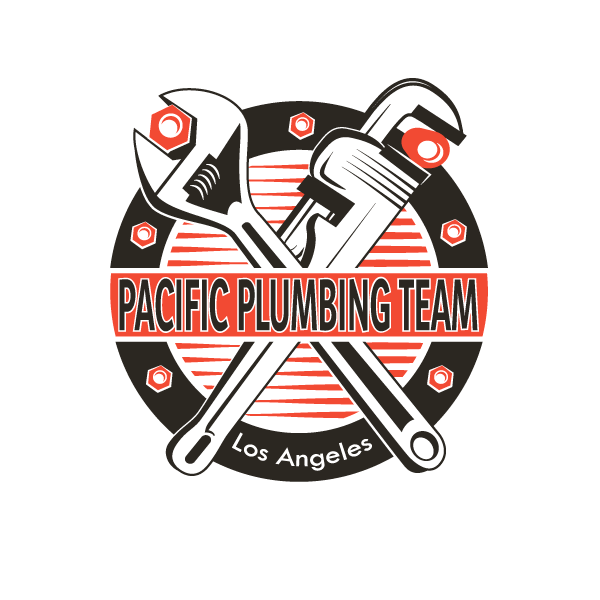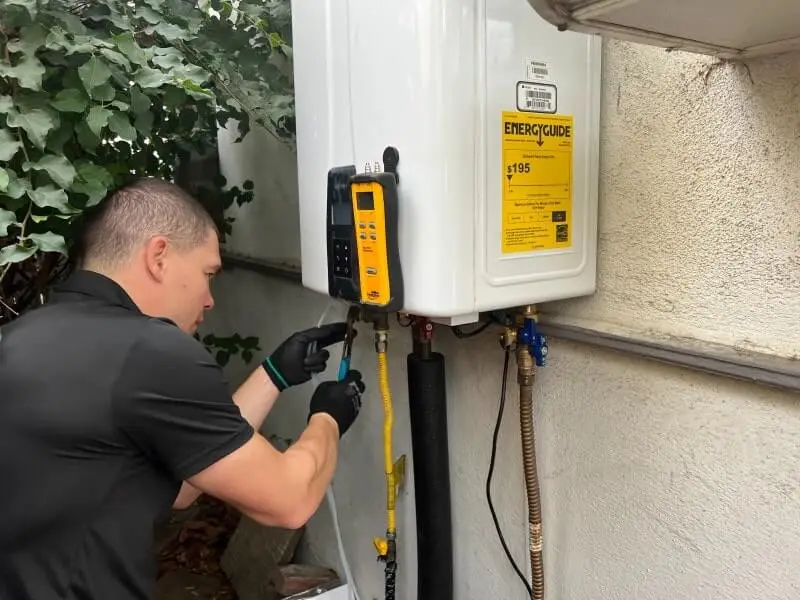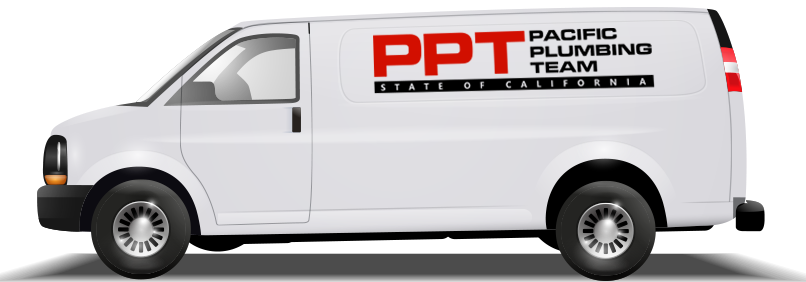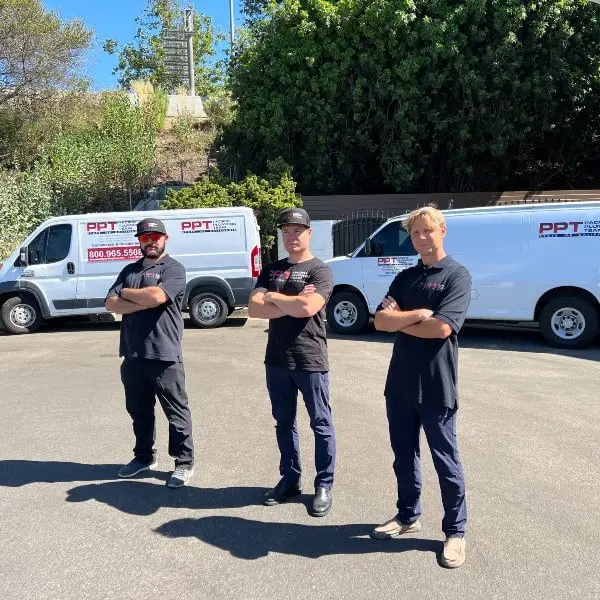Your water heater is probably the most essential plumbing fixture inside your home—from your laundry and dishwasher to showers. It’s a necessity in every modern home.
Apparently, most homeowners overlook the importance of maintaining their heaters. It’s always when a problem shows up that they realize a repair is needed. In this blog, we talk about maintaining your water heater and how to do it.
Kinds of Water Heater

A water heater’s maintenance routine may vary depending on its kind. There are several kinds of water heaters, and each functions slightly differently.
Let’s discuss the types of water heaters and how they function:
Tank Water Heater
This kind of heater is designed with a tank and a heating element that can store hot water until it’s needed. It is probably one of the most affordable options on the market. The tank size can vary from 30 gallons to 80 gallons of water. Typically powered by electricity or gas, it actively heats water until it reaches a certain temperature.
Tankless Water Heater
With a short series of super-heated coils, this heater can rapidly heat water as it passes through – providing an endless supply of hot water. Commonly used in smaller homes like apartments, condos, and townhouses, this heater is just half the size of a standard tank heater.
This heat-on-demand device is a popular option due to its size. It doesn’t waste gas or electricity, heating up only when you use it. Tankless hot water heater maintenance may be slightly different from that of a tank heater.
Point-of-Use Water Heater
As its name suggests, a point-of-use water heater provides heating to only one plumbing fixture. Unlike the first two we mentioned, it doesn’t provide heating for the whole house. This option is rather inexpensive and doesn’t take up much space. You can find both a tankless and one with a small water tank for point-of-use devices.
Solar Water Heater
Utilizing solar energy as its source of power, a solar water heater does not need electricity or gas. If you’re after lower utility costs in the long run, investing in a solar water heater is essential. This kind of heater has a relatively large insulated tank where hot water is stored until it’s needed for use. You have the option to install this on your roof with the solar panels it comes with or in another place in your home. The only downside is the price point – since you have to shell out a higher amount of money upfront.
Hybrid Water Heater
A hybrid water heater does not require a direct fuel source. It uses a heat pump to draw heat from underground and air. This water-heating method uses less power, up to 60% less than a conventional tank heater. This water heater is not recommended for areas with cool climates, as it relies on ambient heat. Additionally, it can be more expensive than regular heaters and can take up more space in your home.
Combination Boiler Heater
A single-unit appliance that is designed to heat your home and water that is used in various plumbing systems throughout the house. It distributes hot water across baseboard radiators or floor systems. Depending on the specific system it uses, a combination boiler heater can also distribute steam to heat the home. Since it is compact and has low operational costs, it’s a great choice for smaller homes that require year-round heating.
Condensing Water Heater
This type of water heater is highly energy efficient due to its system that takes advantage of unused waste gas fumes. When natural gas is burned by the furnace, the heated waste gas is funneled into a coil to heat the stored water inside the tank. These heaters can keep utility bills low and offer a high level of energy efficiency. However, they are typically available as larger units than the average conventional tank heater.
Signs You Need a Repair
(insert an image of a technician fixing or doing something on a water heater]
As we said earlier, unless you consistently do preventative maintenance on a hot water heater, you won’t really know if there’s an underlying problem until it presents itself. This section helps you understand the possible issues your water heater might have.
Visible Issues
- Rust in water – Discolored water can indicate rust and corrosion inside your tank. This can also mean a possible sediment or limescale build-up which is common in areas with hard water.
- Corrosion on the tank – Seeing visible rust or corrosion on your tank is definitely an issue as it can also be present on the inside.
- Water leaks – If unchecked, small water leaks could lead to bigger problems. Remember, leaking water can do all kinds of damage in the exposed area. Leaks can be caused by a variety of reasons, such asold tanks, faulty relief valves, lack of maintenance, and sediment buildup.
- Foul odor – If there is a noticeable foul order coming from your water or a metallic flavor to it, it means there are bacteria present, and your anode might need a change.
Performance Issues
- Inconsistent water temperatures – A failing heating element or thermostat can lead to temperature inconsistencies. If you experience these fluctuations, they’re indicative of internal heater problems you have to look out for.
- Reduced supply – If you run out of hot water than usual, your heater may need to be replaced or serviced. This kind of issue can be more complex than what it seems to be. To be sure, call the professional in water heater repair.
- Strange noises – Rumbling or popping sounds indicate sediment buildup, at the least. Take a look as soon as you hear noises to prevent further damage to your heater.
- Overheating – If you notice your unit is hot to the touch, it means it’s overheating, and the problem can be in the ventilation system or tank insulation.
How to Maintain Your Water Heater
(insert image of plumber fixing a heater)
Hot water heater maintenance should be a routine given the frequent usage of your home or office units. These, like any other investment, need to be maintained.
A tank water heater can last up to 12 years, and a tankless heater, up to 20 years. And for tanks to reach this ideal age, homeowners should not forgo maintenance and annual checks on their units. Keeping a water heater maintenance checklist for your home can come in handy in the long term.
Preventive maintenance on a hot water heater includes flushing the unit, checking or changing the anode rod, inspecting for sediment or rust buildup, and testing the thermostat and valves.
Sounds intimidating right? That’s why we suggest to hire a professional plumber instead.
Essential Tools You Need
For basic tank and tankless water heater maintenance, you’ll need a set of tools. The first step is to gather everything you need before starting any maintenance on a water heater – this saves you time and effort.
- Water hose
- Bucket
- Adjustable and pipe wrenches
- Screwdriver
- Teflon tape
- Safety gloves and goggles
Safety Precautions
Water heater preventive maintenance comes with a set of safety precautions. Your top priority should always be your safety. Working with water heaters can cause harm and injury if not done correctly. Don’t hesitate to call us, if you need help with plumbing.
- Unplug power source. For electric water heaters, switch off the circuit breaker and unplug the outlets. For gas heaters, turn the gas valve into a “pilot” position.
- Turn off the water supply. Locate the valve from your main water line and shut it down – you don’t want an instant waterpark in your home.
- Allow water to cool. After turning off the power, allow the water inside the tank to cool before performing a maintenance check.
- Wear protective gear. The use of safety goggles and gloves is always a must in any kind of maintenance work.
- Ensure proper ventilation. If you have a gas heater, make sure the area is well-ventilated as a buildup of gas can be harmful.
Annual Maintenance Check
While homeowners like you can perform rudimentary inspections, there are scenarios when you just have to call for water heater service done by professionals. Maintenance on tankless water heater should be quick as well as gas water heater maintenance.
Water heater maintenance cost is not much if you compare it to a bigger problem. The only times it can cost you a lot is when your heater problems involve replacement parts and substantial issues like leaks and rusting, have escalated to another level.
Prevent Heater Problems
Doing your maintenance checks religiously will surely prevent any heater problems in the long run.
Remember to integrate preventive maintenance tasks:
- Create a schedule for maintenance tasks – Prepare a routine check-up for your heater. You may do it weekly, monthly, or annually, whichever suits you best.
- Document tasks – If you notice sediment buildup, include flushing in your next maintenance schedule. This prevents you from overlooking areas that will need your attention soon.
- Set reminders – Since you already have documentation from your previous check, it’s essential that you set reminders on your phone or calendar to enable you to stay consistent with your maintenance routine.
When to Call Professional Plumbers
Maintaining your water heater is critical in saving you both money and time. Making maintenance a part of your routine can definitely help in making your appliance last longer.
While homeowners can inspect their home heaters, don’t hesitate to call the professionals if complex problems persist. If you’re looking for a plumber in Los Angeles, Pacific Plumbing Team offers quick solutions to all kinds of plumbing problems. Contact us today and we’ll send our plumbing expert in as fast as 1 hour!






